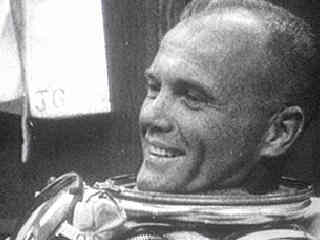
How is the arousal of my emotions related to stress?
Click picture to enlarge! Adapted from a book , Emotions: A Psychoevolutionary Synthesis, Robert Plutchik, Harper & Row.
A cognitive psychologist postulates a stress model [1],[2]
The cognitive psychologist model postulates that when stress is perceived, and appraised as stressful, emotional arousal occurs which triggers physiological arousal resulting in stressful consequences. Robert Plutchik provided a prototype which consisted of a language of emotions, behaviors of emotions, and functions of emotions. The hypothetical illustration below might be one way a cognitive psychologist could depict the flight-or-flight response according to the Plutchik model.
As an example, imagine you are driving your car to a college campus one rainy morning. You suddenly see a car ahead of you stop right in the middle of the road. You interpret the situation as bad and experience (FEAR). Your pupils dilate, your mouth becomes dry, your heart accelerates, and you immediately apply your brakes. You then interpret (SURPRISE) as you come to realize that the car stopped in the middle of the road. You can sense adrenaline and the squeeze on your solar plexus. You cannot see how to avoid hitting the car and you crash. As you notice that you hit the car from behind you interpret that you are at fault and feel (SADNESS). You interpret how could anyone be so stupid to stop in the middle of the road and you feel (DISGUST). You get out of your car and walk up to the car from behind. to see what was matter with the driver and you interpret that as something he/she should not have done and you feel (ANGER).
As you look to find the driver you (ANTICIPATE) seeing a real person but instead see a dummy slumped over the wheel. You look around and see T. V. cameras and reporters getting out of their cars, with medics running up to you to monitor your vital signs. You now realize that you are on candid camera and are part of a study on (STRESS). You interpret that as a good event and you jump for (JOY) as you are told that you have won a brand new automobile and will be a celebrity on television. Even though you feel (JOY) you notice that your pupils constrict, your mouth is still dry, your is beating very rapidly. You sit down breathe slowly and deeply for five minutes and now you notice that you feel calm and interpret at everything is o.k.. and you feel (ACCEPTANCE.)
What has happened is that you have experienced the GAS (General Adaptation Syndrome) and have experienced the involvement of your SYMPATHETIC and PARASYMPATHETIC nervous system. You experienced the stages of stress ALARM, RESISTANCE, AND Exhaustion as postulated by Hans Selye..

Your body reacted the same, but your interpretation of the events you labeled as different. Describe a situation when you think that your appraisal of the event lead to stressful consequences.
See if you can do as the model above and indicate your emotional responses and how you could have changed them to be different.
What are some of the advantages of this
theory? What are some of the disadvantages, if any ?
1. Jerrold S. Greenberg,
Comprehensive Stress Management, 8th ed., Boston: McGraw-Hill, 2002, p.62
2. Brian
Luke Seaward, Managing Stress: Principles and Strategies for Health and
Wellbeing, 3rd, ed., Boston: Jones and Bartlett Publishers, 2002, pp.
177-183
Email:
rbrehm@msn.com
Telephone: Cell 206-930-4197
Copyright © 1998 [Robert Brehm] All rights reserved.